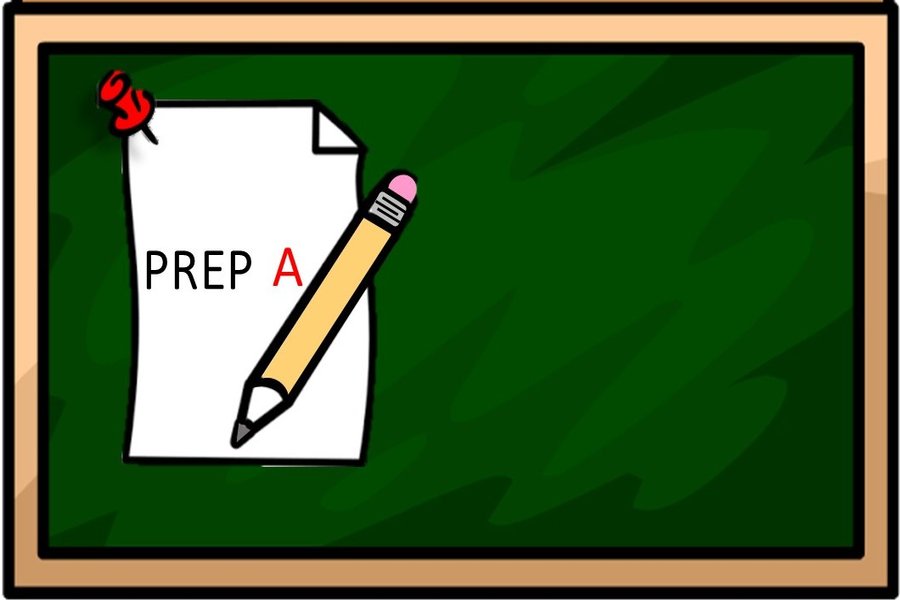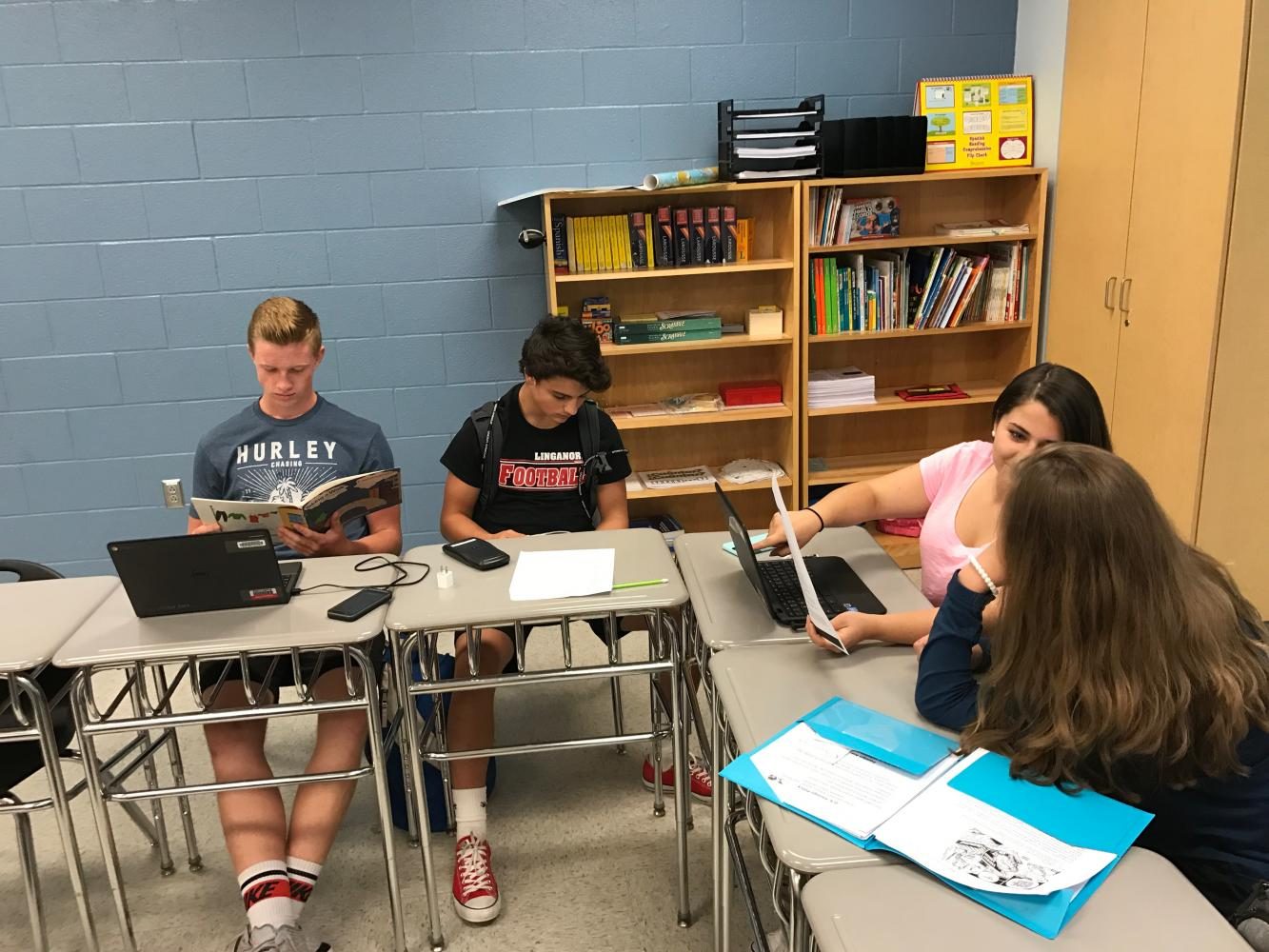Are we PREP-ing for success or just relaxing? Fix the problem with graded PREP
May 11, 2017
“Linganore’s mission is to equip students for life-long learning through lessons in academics, accountability, and attitude.” That is the message proudly proclaimed on the front page of our school website. Yet, in PREP, unfortunately, we are beginning to lack the accountability and focus on academics to live up to the promise of our mission statement.
If students received a grade for PREP, this would benefit them tremendously and by extension, it would help Linganore High School together reach their mission statement.
PREP was created to eliminate the extra tutoring time after school that was often inconvenient for student-athletes and, instead, create a time in the day for students to finish homework, study, catch up on missing work, and receive extra help. It’s 35 minutes built into the day where students can be productive so that they have more free time at home.
Yet, many are playing Clash of Clans on their phones or checking Snapchat. Some talk noisily amongst their friends about their weekend plans and disrupt others who are trying to work. Or perhaps others are sitting silently but they’re in a rush to finish Thirteen Reasons Why or catch up on The Blacklist on Netflix.
Are these really the best uses of time?
From experience, I’d say no. I’m guilty of relaxing in PREP and putting off my homework until I get home. I make excuses and say that I’m too tired to do my homework and that I have time to do it later. What I don’t realize then is that after a long school day, I’m more tired than I was in the mid-morning when PREP takes place.
If PREP was graded, it would hold me and other students accountable for being on task for just 30 minutes out of the day so that homework doesn’t cut into our already scarce free time even more than it already does.
Even if students don’t have homework, reading a book (or The Lance newspaper) would engage your mind more than a Netflix show.
The main counterargument is that school is long and breaks in the school day are necessary to keep students energized. Last year we didn’t have a break or a study hall in the day, and there was no complaining because nobody knew anything different. If we were able to survive without breaks then, couldn’t we do so now?
If you think about, in some ways study hall is a break. It’s 30 minutes of independent study which typically isn’t a big head scratcher. By just being on task in study hall, students would receive an easy A for PREP. This would improve their grades in other classes as well.
Some PREP classes are already on task, so this wouldn’t be a big change. If the school commits to doing this, they need to be consistent. All PREP classes need to be strictly graded on students being on task during this time.
Another solution proposed by Mr. Chris O’Connor, physical education teacher, is to have an incentive or reward for good behavior. He also said that there should be “current events and academic but non-class specific activities to complete during PREP.”
While this is a great idea, it runs into the same problem of consistency. How do you regulate what current events and rewards each class gets?
The most simple way to fix the problem of underutilized PREP time is to have it be graded. It might sound like a chore now to give up this free time but in the end, it’ll benefit you.
Don’t let tutoring torment you: Why grading in PREP is ridiculous
In the inaugural year of the PREP block, there have been many ups and downs.
In this period, many students use this time to monitor grades, get a head start on homework assignments, study for classes and tests, as well as completing and making up classwork assignments.
However, other students have used their time unproductively, accomplishing little or nothing in what was supposed to be allotted time for studying and tutoring from teachers.
There are improvements that can be made, as this first year of the period’s inclusion in the schedule was one meant for improvement. Grading students on their prep performance is not the answer to a problem that can be solved with more simple solutions.
A grading system for PREP would be a difficult and pointless system to understand for many reasons. Given that PREP classes are organized by grade, with randomly assigned teachers, how would work be graded and judged by a teacher who doesn’t have the student in a class? Because of the random selection of teachers for these classes, it would be hard to distinguish grading an assignment that a student did in class or a paper that PREP time was used to work on. This factors into the potential for cheating and dishonesty occurring in this grading system.
What if students don’t have work to finish or catch up on? Students can’t be graded on having anything to do. When finished work, going on approved websites or reading magazines or books shouldn’t have to be a problem. Grading would either have to be based on completion or accuracy, which seems like a stretch of effort for teachers who are supposed to tutor students from their own classes.
Not all classes cause riots and raise havoc either. This can be referred to the maturity of different ages. As being in a freshman Prep class myself, I see some kids being louder and more off task than others. We are 15 and young and only getting our first taste of high school. But when I walk in the halls by PREP classes with upperclassmen, I hear crickets.
Not only does this inconvenience teachers, this potentially hurts students and their grades. It’s unfair for a student’s GPA to fall due to an irrelevant grade in what was meant as a learning and tutoring period. Having a poor grade also means that the many athletes couldn’t participate in their sporting events, or even attend practices. What’s more, a sub-par GPA score can scare away colleges and create trouble at home. Is the potential risk of lower grades more important than the use of time over 35 minutes? I sure think so.
Although implementing grading isn’t the answer, that doesn’t mean that other simpler solutions won’t steer students in the right direction. Students without work to finish can help others with their own. They can read a book or help a teacher prepare for their next period. There can be rewards at the end of the week given to those who behave the best. All of these options suffice over grading how a student performs in a relaxed study hall period.


